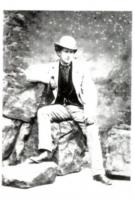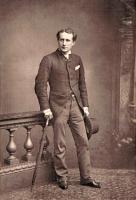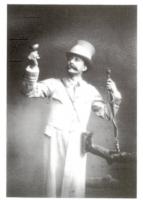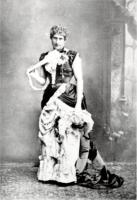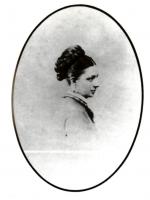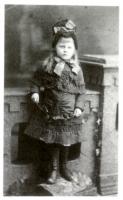
Charles Allen Du Val
His life and works
Charles Henry Du Val
| Charles Henry Du Val |
|---|
| Born: 1846 Manchester |
| Died: 1889 Red Sea |
| Father |
| John Edward Burghall Wall Du Val |
| Mother |
| Eliza Ann Murray |
| Siblings |
| Eliza Ann Du Val born 1835 (Lily) |
| Anna Selina Du Val 1844-1967 (Nan) |
| Spouse |
| Mary Dorcas Burke married 1877 |
| Children |
| Madeline Du Val 1878-1970 |
| Rupert Du Val 1880-1882 |
Charles Henry Du Val was born in Manchester on 27 October 1846, and baptised in Manchester Cathedral on 29 January 1847. He was called Charley in the family.
When Charley Du Val left school in about 1862 he entered the office of John Law, a respected Manchester lawyer with a large practice. This relieved the burden on his father, who was in financial difficulties, further lightened when Charley’s sister Nan went to live with her maternal uncle William Petty Murray at Blackrock near Dublin. Members of the extended Du Val family helped John Du Val in his straitened circumstances. Uncle Charles Allen Du Val perhaps helped to secure Charley his position with the leading Manchester lawyer. There Charley met a lifelong friend Paul Merritt, who shared his sense of humour and interest in theatre. Merritt was to become a successful writer of melodramas for the London stage (1).
Both Paul Merritt and Charley Du Val acted in amateur theatricals and frequented the Manchester theatres and music halls. Charley’s interest in legal work waned, and Paul Merritt persuaded him to go on the stage professionally. Aged eighteen he joined Oldham Repertory Theatre. He stayed for about a year, but enjoyed little success. So he went to Ireland on a long visit to his sister Nan and their uncle’s family at Blackrock (2).
In the winter of 1865 – 1866 he wrote the first version of his one-man show that he called Odds and Ends. The opening night drew little notice, but by the end of the first week the audiences grew large enough for him to exceed his costs. He was a marvellous female impersonator, and his Belle Dashaway was the star of the show. His gowns were always in the latest fashion, and Belle gradually developed from being a shy girl to a sharp-tongued spinster as Charley continually refined his performance. Numerous press reports appeared advertising and praising his show (3).

While in Ireland, he met Nan’s fiancé Frederick d’Olier Foot. They became close friends, and Charley relied on Fred for business advice and he made him the executor of his will. By the end of 1866 Charley was back with his parents in Manchester, but he was determined to continue with his show, and soon he got a booking in Liverpool.
In June 1867 Charley attended the wedding of his sister Nan to Frederick Foot in Booterstown church. He made Dublin his home, and from there he toured Ireland and England with his one-man show, which became increasingly successful. He began his solo performance with an impromptu sketch, sprinkled with local and topical allusions so loved by audiences. He included songs that he had himself composed, and there was an appearance of the popular Miss Dashaway. Among other characters he introduced were charlady Betsey Scrubbe, Irish peasant Terry O’Reilly, portrait painter Mr Palette Brush (perhaps based on his uncle Charles Allen Du Val), the Irish Schoolmaster (surely drawn from his father), and Captain Rattlecash.
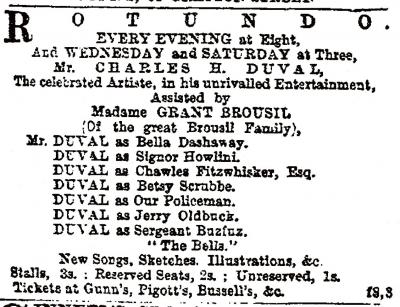
Freeman’s Journal & Daily Commercial Advertiser Dublin 9 February 1869
His uncle Charles Allen Du Val died in June 1872, and his father on the 8 August following. John Du Val had worn himself out struggling against poverty. Charley was in Sligo and was devastated to be unable to reach Manchester in time to see him before he died. Charley's mother gave up her small house in Manchester and moved with her daughter Lily to Douglas in the Isle of Man. There Lily opened Miss Du Val’s Dancing Academy, which became an institution and enabled her to support her mother and herself until she died in 1915.
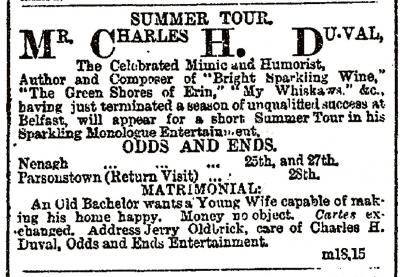
Freeman’s Journal and Daily Commercial Advertiser Dublin 25 March 1872
By 1872 Charley had performed for five years, and given over three hundred shows, travelling continually.
Often he gave only one or two performances in some venues. Some were given for charities (4).
Early in 1873 he fell seriously ill and was forced to cancel performances. Probably he had contracted tuberculosis. He went to Douglas to be cared for by his mother and sister – to such good effect that by the autumn he was well enough to give "Readings and Recitals in Douglas, Ramsey and Castletown".
In 1876 he published a book of poems and sketches, and on 9 May 1877 he married Mary Dorcas Burke, known as Minnie in the family. The wedding took place at Christ Church, Leeson Park in Dublin, and the couple took up residence in Mountpleasant Square, together with Minnie’s sister. A daughter, Madeline, was born on 6 March 1878. Soon afterwards, Charley became seriously ill again, and his convalescence in Wicklow took longer than expected. His doctors advised him not to spend another winter in Ireland, and suggested South Africa as being a suitable country in which to recuperate. Clearly, however, they had no knowledge of the primitive living and travelling conditions there, nor of how harsh the climate could be.
The situation in South Africa was in fact far from healthy at that time. The Boer republic of Transvaal had been annexed by the British crown but rebellion simmered. By 1879 it was wrongly believed that the costly Zulu wars had ended. Yet the British press presented South Africa as an earthly paradise, and emigration was encouraged. And so when his doctors suggested South Africa as an ideal place for convalescence, Charley jumped at the idea, and adventurous Minnie was keen to go with him.
Baby Madeline was taken to Ireland and put into the care of Lily. Preparations for sailing began. Charley could not afford a work-free holiday, so the show would have to go with them. Hampers of clothes and props were packed. The tour was reported. The Dublin press even announced that Charley was to make a world tour of "the United States, Canada, the Colonies, and India, via the Suez Canal" (5). Furthermore, he was to be an accredited press correspondent, sending back reports of his travels to several leading newspapers (6).
Everything was set for the travels of The Great Entertainer in South Africa.
(1) The account of Charley Du Val’s early life story is based on the delightfully entertaining and informative biography by Vivien Allen entitled Du Val Tonight! The Story of a Showman (1990), expanded with information taken directly from Charley Du Val’s own book With a Show through Southern Africa and Personal Reminiscences of the Transvaal War. (The one-volume popular edition published for the South African market in 1884 has been used.)
Information has also been added from reliable contemporary newspaper cuttings.
Care has to be taken with such press reports, as at least one other man was operating as “Charles Henry Du Val” during the lifetime of Charley Du Val, and indeed beyond. As early as 1860 there is a report in The Era of a man of that name unsuccessfully seeking a licence from magistrates for theatrical performances in the Alhambra Circus in Birmingham in competition with the Theatre Royal (12 August 1860). He can not have been Charley Du Val, who was then only 14 years old. On 18 January 1862 the Preston Guardian carried a report that a “Mr C.H. Duval” was granted an extension to his licence of the Theatre Royal in Preston. Four days later the same newspaper ran a report of a fatality following an advertising procession by Mr Duval through the town. In 1863 a Mr Charles Henry Duval was fined for unlawfully performing a play in a Bradford pavilion (The Era 28 June 1863). During the 1870s a proprietor of that same name had a company of travelling actors performing plays in theatres in Birkenhead, Liverpool, Blackburn, and elsewhere. A "Blackburn, theatre lessee" with the alias "Charles H. Duval" was listed among “English Bankrupts” under the heading “Liquidations by Arrangement” in the Glasgow Herald on 23 June 1880.
(2) Charles Henry Du Val regarded his Manchester birth as a blip of fortune, and always felt himself at heart to be thoroughly Irish.
(3) For a collection of the press reports of the show see Charles Henry Du Val Press Cuttings.
(4) At Kilkee for the parish house in 1870 (Freeman's Journal and Daily Commercial Advertiser 12 September 1870); Bandon for the Coal Fund in 1872 (Freeman's Journal 4 December 1872); Liverpool for Captain Webb in 1875 (Liverpool Mercury 18 September 1875); and London in 1888 for the fund established on the destruction of Islington Grand Theatre (The Era 28 January 1888).
(5) Freeman's Journal and Daily Commercial Advertiser Dublin Monday 26 August 1878.
(6) Charles Henry Du Val was a gifted writer, and already had in mind to make his living with his pen should his health not permit him to continue performing on the stage.
